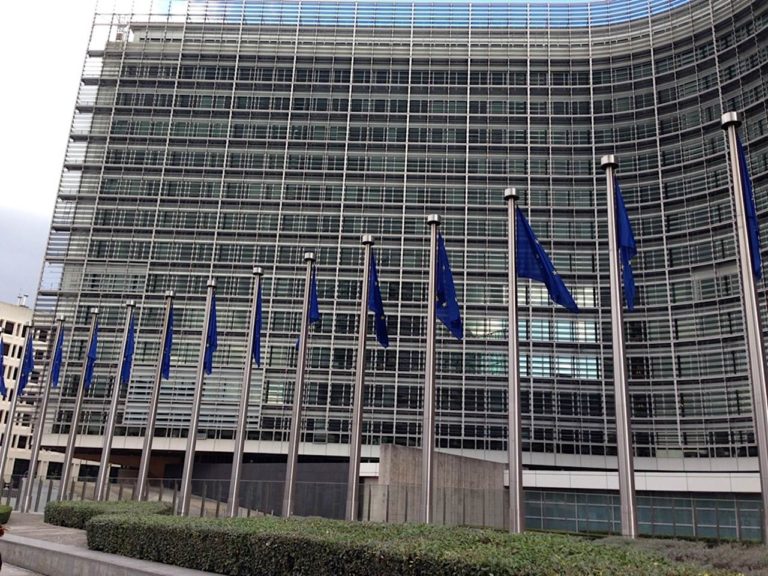Highlights from the Past Weeks
- CW 51 / Monday, 20 to Friday, 24 December: Green Week (no meetings);
- CW 52 / Monday, 27 to Friday, 31 December: White Week (no meetings);
- CW 1 / Monday, 3 to Thursday, 6 January: Committee Meetings Week (Brussels);
FRENCH COUNCIL PRESIDENCY PROGRAMME: Recovery, Strength, Belonging. France has set up its programme (PDF) for the next six months under these focal points. In doing so, the priorities it intends to address include the following:
Justice and home affairs:
- Protection of children (p. 34): France will lead the negotiations on the upcoming proposal of the European Commission on preventing and combatting the sexual abuse of minors.
- Critical infrastructure (p. 34): The Presidency will hold trilogue discussions on the resilience of critical entities for the protection of critical infrastructure, parallel to work on recasting the NIS2 Directive.
- Revision of the Europol Regulation (p. 34): The Presidency will commit to bring forward negotiations with the European Parliament on the revision of the Europol Regulation.
- Hate speech and hate crime (p. 34, p. 36): France intends to place a focus on combatting hatred and discrimination. With this goal, it will support the Commission’s proposal to extend the list of criminal offences covered by Article 83 TFEU regarding hate speech and hate c The Presidency will promote current reflection on the project of an EU Knowledge Hub for the prevention of radicalisation.
- E-Evidence (p. 37): France will work towards finalising negotiations with the European Parliament on draft regulations and directives concerning access to electronic evidence.
Competitiveness and Internal Market:
- Internal Market (p. 46): France intends to press ahead with negotiations for a bold, effective and proportionate legal framework in the Digital Services Act (DSA) and progress in the Digital Markets Act (DMA).
- Copyright (p. 48): The Presidency will launch discussions on the effectiveness of copyright in a globalised environment and back the Commission’s initiatives to combat the piracy of live sporting events, as well as cultural content.
Digital Technology (p. 53-54):
- Cybersecurity/NIS: This will be a core focus for the Council Presidency. The French Presidency will endeavour to push forward the negotiations on the revision of the NIS Directive.
- Artificial intelligence: France will continue examination of the regulation with a view to establishing a balanced regulatory
- ePrivacy: France will continue work on the ePrivacy Regulation. However, it is only scheduled as a discussion item for the Council on 3 June.
- Data Act: The Presidency will begin work on this act.
- European digital identity: France will continue work on this topic in order to promote dependable digital identities for all Europeans. On 3 June, the Council will make a decision on the general approach to be undertaken.
- High-speed broadband: France intends to begin work on the revised Broadband Cost Reduction Directive, provided it is published in the first half of the year.
- IPCEI Cloud: The Presidency highlights the important project of common European interest on next-generation cloud infrastructure.
Energy (p. 55):
- The Council Presidency will continue work on the proposals for the “Fit for 55” legislative package. It will endeavour to speed up the development of renewable energy, encourage energy saving and increase energy efficiency in the EU, in particular by accelerating the pace of building It also intends to promote the use of decarbonised energy sources.
CALENDAR OF THE FRENCH COUNCIL PRESIDENCY: In addition to the new Council Presidency’s programme, the calendar of events (FR, PDF) for the next six months has also been published. Among others aspects, this includes the Telecommunications Council on 3 June, with the following topics (p. 62):
Legislative consultations
- AI Regulation ((possibly) general approach / progress report / exchange – exchange of views);
- Regulation for a European Digital Identity (general approach / progress report / exchange of views);
- Data Act (progress report / exchange of views);
Ongoing legislative proposals
- NIS2 Directive (information from the Presidency)
- ePrivacy Regulation (information from the Presidency)
- Broadband Cost Reduction Directive (information from the Presidency)
- Inter-institutional solemn declaration on digital principles and rights (information from the Presidency)
- Toolkit for European Connectivity (information provided by the Commission)
For the Home Affairs Council on 10 June (p. 45), the planned agenda includes the directive on combatting the sexual abuse of minors (orientation debate / progress report).
DIGITAL MARKETS ACT – AGREEMENT TARGETED FOR MARCH: The plans for the Digital Markets Act (DMA) appear to be based on an envisaged quick success of the trilogue talks. Negotiators plan to meet as early as 11 January for a first round of talks between the French Council Presidency and representatives of the European Parliament. A second round of talks is to follow on 15 February in Strasbourg, before a “possible agreement” is to be reached on 29 March. (see Politico Pro, paywall)
CRITICAL INFRASTRUCTURES – COUNCIL CONFIRMS NEGOTIATING MANDATE: EU Member States approved their general approach on a draft directive aimed at reducing vulnerabilities and strengthening the resilience of so-called “critical entities” at the end of last year. With the Council’s approval, the trilogue talks with the European Parliament can now commence. The latter had already supplied the mandate in October. (4-column document, Council press release)
The text was presented by the EU Commission together with the NIS2 Directive and requires EU Member States to implement a strategy to improve the resilience of critical entities and to conduct a risk assessment every four years.
ARTIFICIAL INTELLIGENCE – AMENDMENTS IN THE AIDA COMMITTEE: After the submission deadline in December, the Special Committee on Artificial Intelligence has published (most of) the amendments (1-281, 282-555, 556-825, 826-1108, 1109-1384). A discussion on these will take place in the committee on Thursday.
The proposed amendments go so far as to completely rewrite the text drafted by rapporteur A. Voss (EPP).
- Benifei (S&D), the IMCO co-rapporteur for the Artificial Intelligence Act, took on most of the work for his political group and, when it came to a number of important points, changed the wording to the exact opposite of Voss’ draft.
Meanwhile, the second (LIBE) co-rapporteur, D. Tudorache (Renew), seems to be taking the role of mediator between centre-right and centre-left.
MINIMUM TAXATION – EU COMMISSION PUBLISHES DIRECTIVE: Last autumn, the countries united in the Organisation for Economic Co-operation and Development (OECD) agreed to introduce a minimum tax for multinational companies. The aim of the OECD agreement is to ensure fair global taxation of internationally active companies on the basis of a two-pillar model (Pillar I: re-allocation of taxing rights or tax revenues; Pillar II: agreement on a minimum tax of 15 percent).
In accordance with the second pillar, the EU Commission presented a proposal for a directive (PDF) on 21 December 2021 to implement the global minimum tax at European level. According to the scope of the directive, the tax liability for globally active companies starts at an annual turnover of 750 million Euro. The deadline for feedback is 4 March 2022 (see press release COM).
PROTECTION OF MEDIA FREEDOM – EU COMMISSION GATHERS OPINIONS: Shortly before Christmas, the Commission launched a call for evidence on an impact assessment on the topic of safeguarding media freedom in the EU. A subsequent public consultation is to follow shortly, while the impact assessment will take place in the second quarter of 2022 and an initiative (recommendations to Member States or a legal instrument) will be pursued in the third quarter.
According to the Commission, the key objectives of the initiative will be to:
- ensure that media companies can operate in the Internal Market subject to consistent regulatory standards, including as regards on media freedom and pluralism;
- ensure that EU citizens have access to a wide and varied media offer both offline and online;
- safeguard the editorial independence and independent management of the media, which is a precondition of media freedom and of the integrity of the Internal Market;
- foster undistorted competition between media companies by ensuring a transparent and fair allocation of state resources.
The initiative is to be implemented by the Audiovisual and Media Services Unit of DG CNECT under the leadership of Anna Herold (former cabinet member of ex-Commissioner Oettinger).
PROTECTION OF MINORS – JOHANSSON STICKING TO CSAM MANDATORY REPORTING: EU Commissioner Y. Johansson told the German newspaper “Welt am Sonntag” that the Commission wants to significantly improve the protection of minors on the Internet in the future. She went on to say that voluntary reporting would no longer be sufficient, also in view of the number of reports, which increased from 17 to 22 million last year. According to Johansson, this is also only a “fraction of the actual criminal offences”.
“This obligation will mainly concern the large Internet companies, which have done 99 percent of the reporting so far,” writes Welt am Sonntag, quoting Johansson: “The Meta company alone is responsible for 95 percent.”
“Of course, Johansson continues, data protection and encryption are important. ‘But the focus must be first and foremost on protecting children’.”
The adoption of the legislative proposal by the Commission is currently scheduled for 2 March.
FRANCE – DATA PROTECTION AUTHORITY PURSUES HIGHER FINES: For some time now, the French data protection supervisory authority CNIL has been taking action against the overly complicated rejection of cookies on websites. The basis for this is provided by the French Data Protection Act (Art. 82) and the ePrivacy Directive.
The current fines can be seen as a deterrent warning for the approximately 90 operators currently under alert: Google and Facebook have been ordered to pay fines of 150 and 60 million Euro respectively. After a three-month grace period, another 100,000 Euro would be due daily. (see CNIL)
GERMANY – DATA RETENTION SHOULD BE ABOLISHED: The German Federal Minister of Justice Marco Buschmann (FDP) wants to overturn the controversial data retention in Germany: “I oppose the blanket retention of data without cause, and would like to remove it from the law once and for all. It violates fundamental rights”. Instead, telecommunication providers should be required to “quickly save data for a specific cause on the basis of a court order, allowing the police and public prosecutor’s office to then assess it”. Moreover, this should “only be possible in the case of suspected serious criminal offences”. (see Die Zeit – DE)
GERMANY – COOKIE ADVICE OF THE DATA PROTECTION CONFERENCE: The Conference of Independent German Federal and State Data Protection Supervisory Authorities (DSK) has updated its guidance for providers of telemedia (PDF – DE). This is in response to the German Telecommunications & Telemedia Data Protection Act (TTDSG), which came into force on 1 December.
Among other things, writes the DSK, this act regulates the protection of privacy in the use of end devices and has an impact on the use of cookies and similar technologies.
Relevant Publications, including from the EP Think Tank:
- IMCO Report on the Digital Services Act
- Priority dossiers under the French EU Council Presidency (Briefing)
- Outcome of the meetings of EU leaders of 16 December 2021 (Briefing)
- Ten issues to watch in 2022 (In-Depth Analysis)
Outlook for the Coming Week
You can find a list of the upcoming dates of the European Parliament here. The provisional meeting calendar for 2022 can be found here (PDF).
An overview of the most important dates of the Council week can be found here, the meeting calendar is accessible here, and the list of the main topics for the coming 14 days is available here, while an indicative calendar of meetings of the French Presidency of the Council of the European Union can be found here (PDF).
Included among these dates are:
Summit and Ministry Meetings:
- None
Preparatory Bodies:
- Working Party on Competitiveness and Growth (Industry), Monday, 10 and Wednesday, 12 January;
- Working Party on Tax Questions (Indirect Taxation), Monday, 10 January;
- Working Party on Consumer Protection and Information, Tuesday, 11 and Wednesday, 12 January;
- Horizontal Working Party on Cyber Issues, Tuesday, 11 January;
- Working Party on Telecommunications and Information Society (incl. AI), Tuesday, 11 January;
- Working Party on Cooperation in Criminal Matters (COPEN) (incl. E-Evidence, Budapest Convention), Wednesday, 12 and Friday, 14 January;
- Working Party on Hybrid Threats (incl. DSA), Thursday, 13 January;
- Working Party on Competition, Thursday, 13 January;
- Working Party on Competitiveness and Growth (Internal Market) (incl. DSA), Friday, 14 January;
- COREPER I (incl. DMA), Wednesday, 12 January;
- COREPER II, Wednesday, 12 and Friday, 13 January;
Information about the weekly Commission meeting can be found in the preview (PDF) or (at short notice) in the current agenda. Topics of particular relevance include the Data Act (23 February), the legislative proposal for combatting child abuse (2 March), and the Media Freedom Act (29 June). Internal Market Commissioner Breton recently underlined the hope of being able to present the Chips Act as early as the beginning of 2022.
You can find the judicial calendar of the ECJ here.
European Parliament Committees
CW 2 / Monday, 10 to Thursday, 13 January: Political Group and Committee Meetings (Brussels);
LIBE Committee (EP)
Current Meetings
- Thursday, 13 January 2022, 9.00-12.00 (Brussels)
Excerpt from the Draft Agenda
From eco’s perspective, the current draft agenda contains no topics of particular relevance to the Internet industry.
Further Meetings (Calendar)
- Wednesday, 26 January 2022, 9.00-12.00 (Brussels)
- Monday, 31 January 2022, 15.45-18.45 (Brussels)
JURI Committee (EP)
Current Meetings
- Monday, 10 January 2022, 13.45-15.45 and 16.45-18.45 (Brussels)
Excerpt from the Draft Agenda
From eco’s perspective, the current draft agenda contains no topics of particular relevance to the Internet industry.
Further Meetings
- Wednesday, 26 January 2022 (Brussels)
- Thursday, 27 January 2022 (Brussels)
Dossiers Timetable (21 December 2021)
ITRE Committee (EP)
Current Meetings
- None
Further Meetings (Calendar)
- Wednesday, 26 January 2022, 9.00-12.00, 13.45-15.45 and 16.45-18.45 (Brussels)
- Thursday, 27 January 2022, 9.00-12.00 (Brussels)
Dossiers Timetable (7 December 2021)
IMCO Committee (EP)
Current Meetings
- Monday, 10 January 2022, 13.45-16.15 (Brussels)
Excerpt from the Draft Agenda
…
- Transparency and targeting of political advertising
IMCO/9/07812
***I 2021/0381(COD) COM(2021)0731 – C9-0433/2021
| Responsible: | |||
| IMCO | (Renew) | ||
| Opinions: | |||
| CULT | |||
| JURI | |||
| LIBE | |||
| AFCO | |||
- Presentation by the Commission
…
Further Meetings (Calendar)
- Monday, 24 January 2022, 13.45-16.15 and 16.45-18.45 (Brussels)
Dossiers Timetable (December 2021)
CULT Committee (EP)
Current Meetings
- Thursday, 13 January 2022 (Brussels)
Excerpt from the Draft Agenda
…
- Exchange of views with ERGA’s Chair, Mr Karim Ibourki
…
Further Meetings (Calendar)
- Wednesday, 26 or Thursday, 27 January 2022 (Brussels)
AIDA Committee (EP) – Special Committee on Artificial Intelligence in a Digital Age
Current Meetings
- Thursday, 13 January 2022, 13.45-15.45 (Brussels)
Excerpt from the Draft Agenda
…
- Report on Artificial Intelligence in a Digital Age
AIDA/9/04886
| Rapporteur: | |||
| Axel Voss (PPE) | PR – PE680.928v01-00 AM – PE703.077v01-00 AM – PE703.073v01-00 AM – PE703.074v01-00 AM – PE703.075v01-00 AM – PE703.076v01-00 |
||
| Responsible: | |||
| AIDA | |||
- Consideration of amendments
…
Further Meetings (Calendar)
- Thursday, 10 February 2022, 9.00-12.00 (Brussels)
INGE (EP) – Special Committee on Foreign Interference in all Democratic Processes in the European Union, including Disinformation
Current Meetings
- None
Further Meetings (Calendar)
- Tuesday, 25 January 2022, 9.00-12.00 (Brussels)
Further Scheduled Parliamentary Calendar Dates
- CW 3 / Monday, 17 to Thursday 20 January: Plenary Sessions Week (Strasbourg);
- CW 4 / Monday, 24 to Thursday, 27 January: Mini Plenary Sessions Week (Brussels);
- CW 5 / Monday, 31 January to Thursday, 3 February: Committee Meetings Week (Brussels);




